HubWax: Milan – Dakar connections for sustainable fashion
In an old post I anticipated that I would take part in a conversation on African fashion at Centro Internazionale di Quartiere (C.I.Q.) in Milan, where, on 29 September, I attended the art + fashion performance “DEI”, organized by Antonella Rizzo of HubWax and the Ecole de Couture AEFIJ, Guediawaye-Dakar.
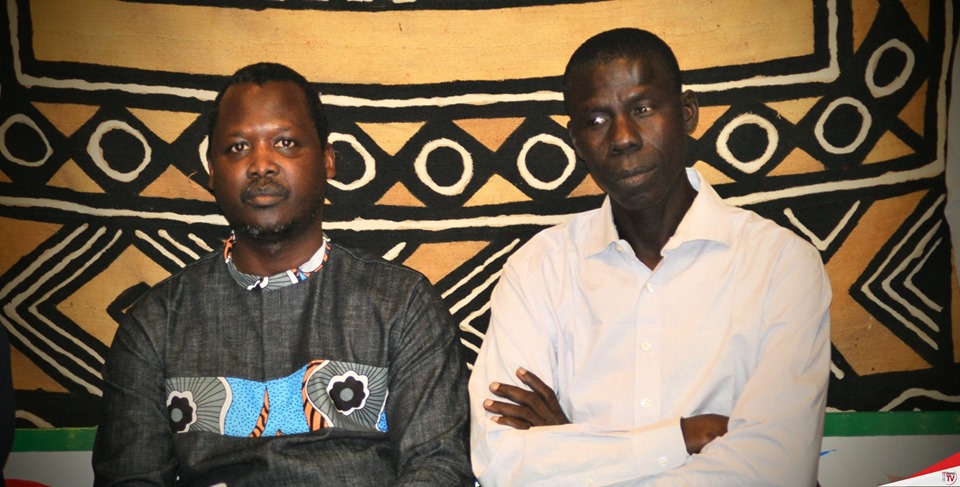
Antonella is an independent researcher/school counselor/artist. Above all, she is passionate about promoting African fashion, something she has carried on steadfastly since visiting Dakar for the first time in 2016. She launched HubWax in the winter of 2019 “to promote African handicraft as an art form and a means of cultural encounter and experimentation”. Since then, she has been able to sponsor a residency for Boubacar Diédhiou and Mbaye Diouf, director and designer of AEFJI, and raise awareness on their important work at the Ecole.
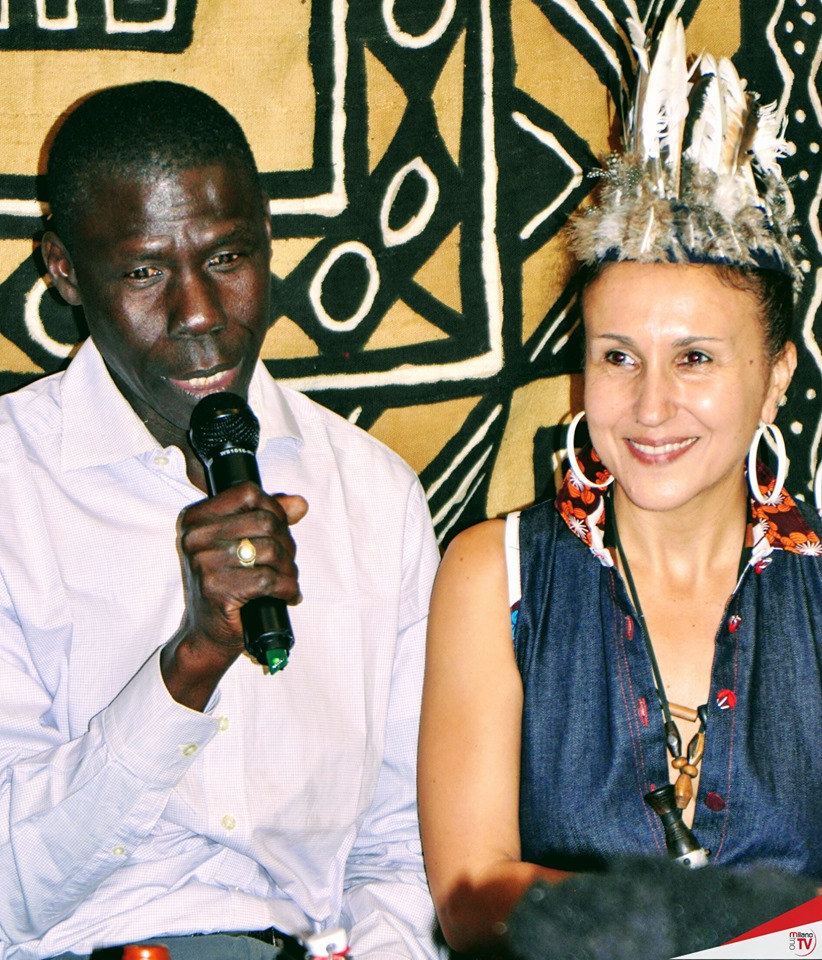
“DEI” was HubWax’s second collaboration with AEFJI. Eleven African and Italian models-for-a-day volunteered to wear the dress-sculptures that Mbaye created during his stay in Milan. They walked at C.I.Q. to live accompaniment of Aliou Ndiaye, master of Senegal’s National Opera. At the end, they arranged themselves in a replica of Michelangelo’s “Creation of Adam” to give substance to HubWax’s goal of exploring new ways of making art from the bottom-up.
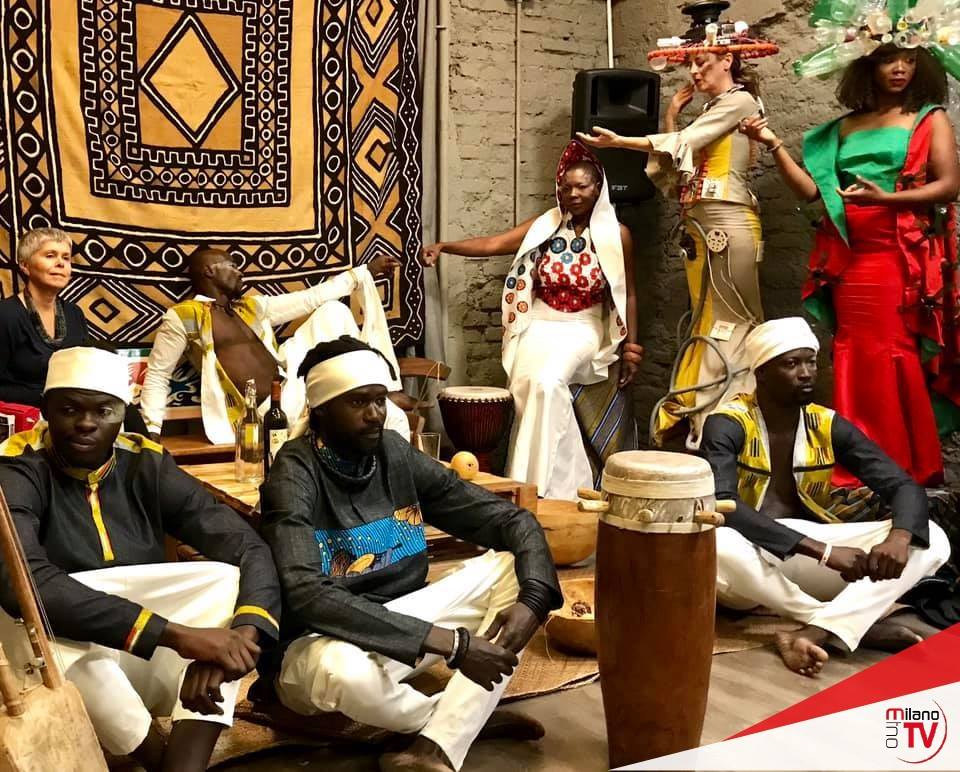
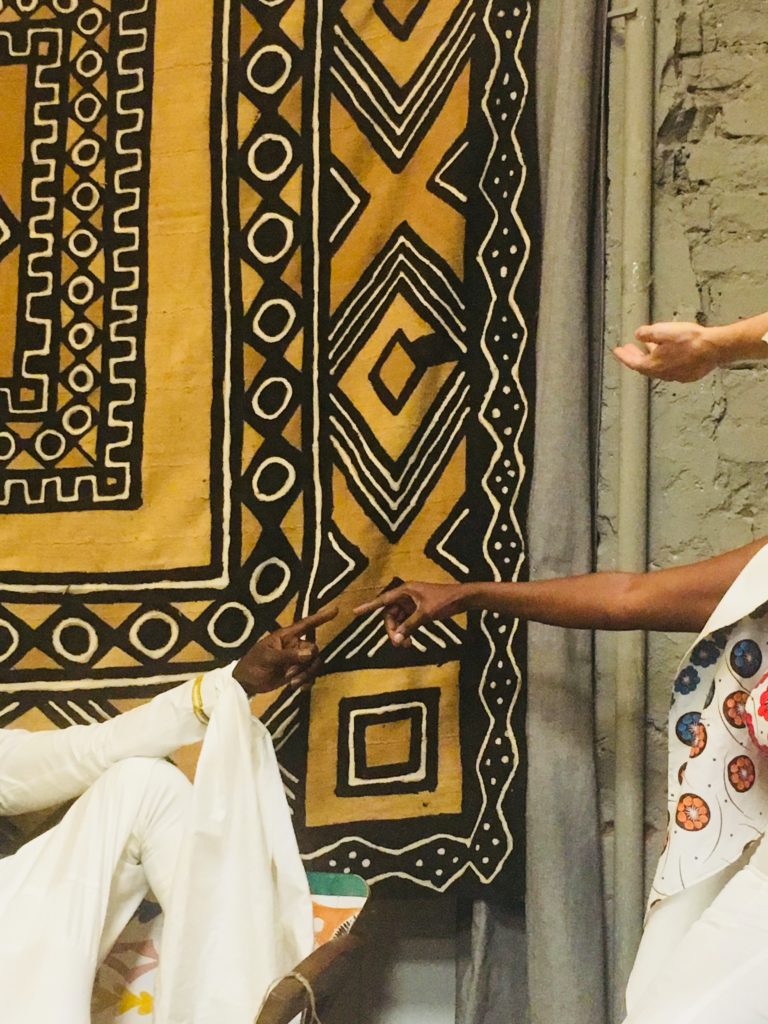
Antonella read two poems that guided our understanding of the show and its important message of equality and sustainability. The dresses were made of repurposed objects – plastic bottles, cigarette cases, e-waste – that Mbaye fashioned into hats, accessories, and decorations, creating bulky garments that denounced pollution and overconsumption.
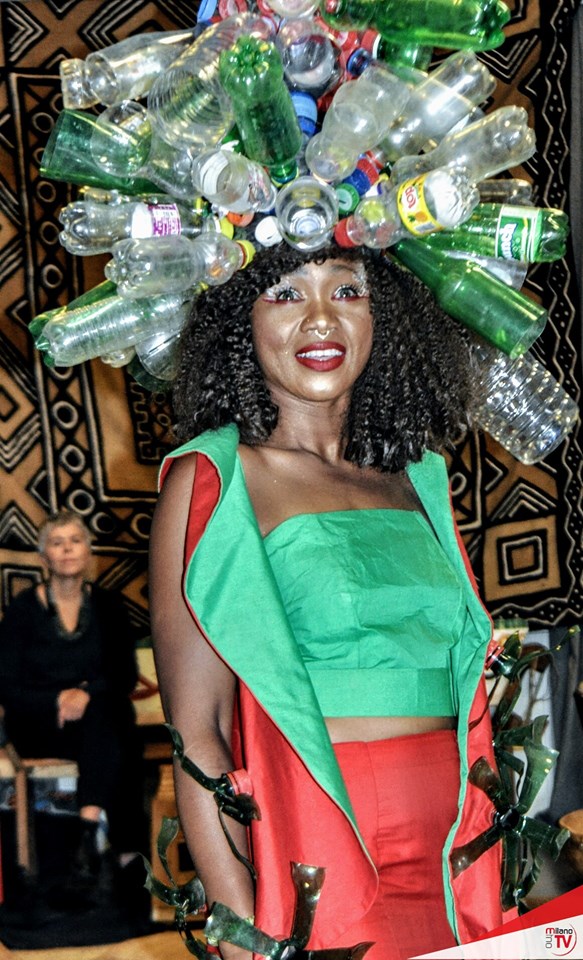
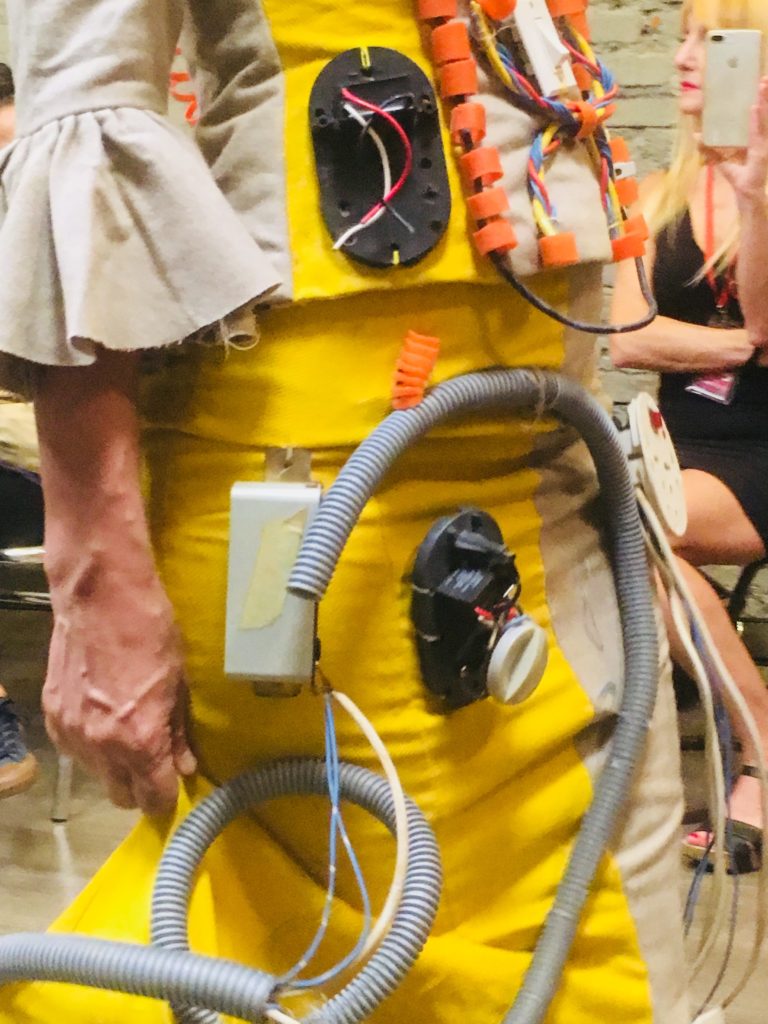
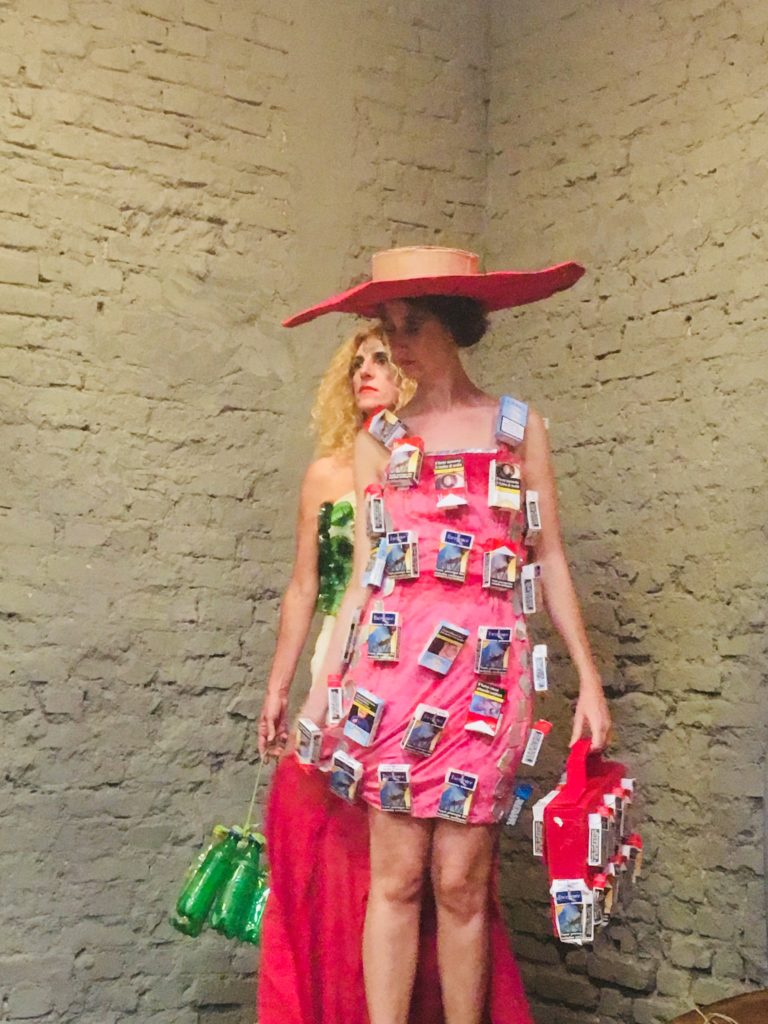
Their physical weight reminded us of the dangers of our culture of consumption and the toll the fashion industry exacts on the planet and its workers. A blue dress with nets spoke of Senegal’s fishing industry, which is shrinking by the year as a consequence of Chinese overfishing, the headdress with the bottles was a visual reminder of plastic’s toxic ubiquity.
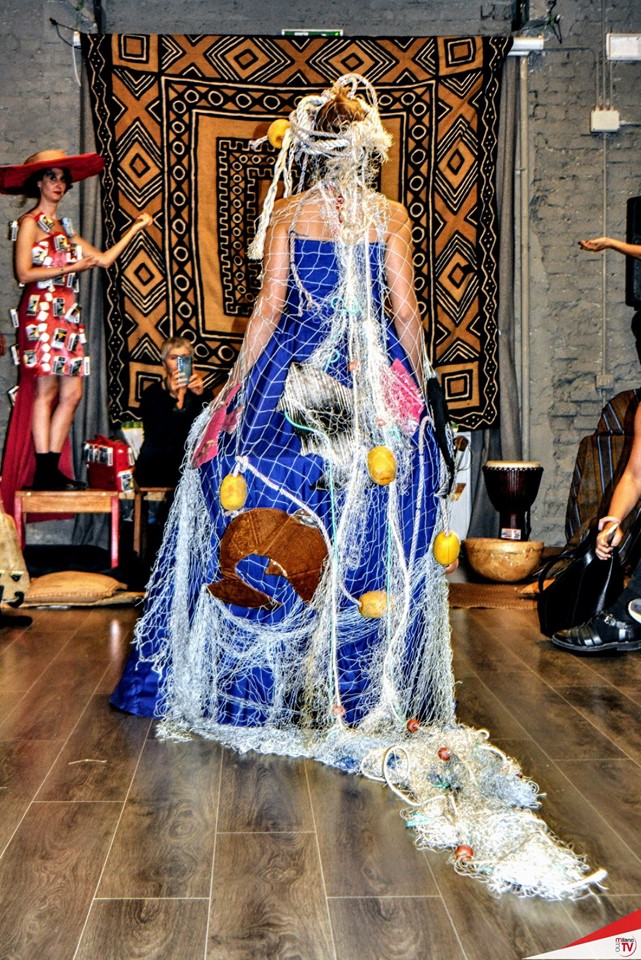
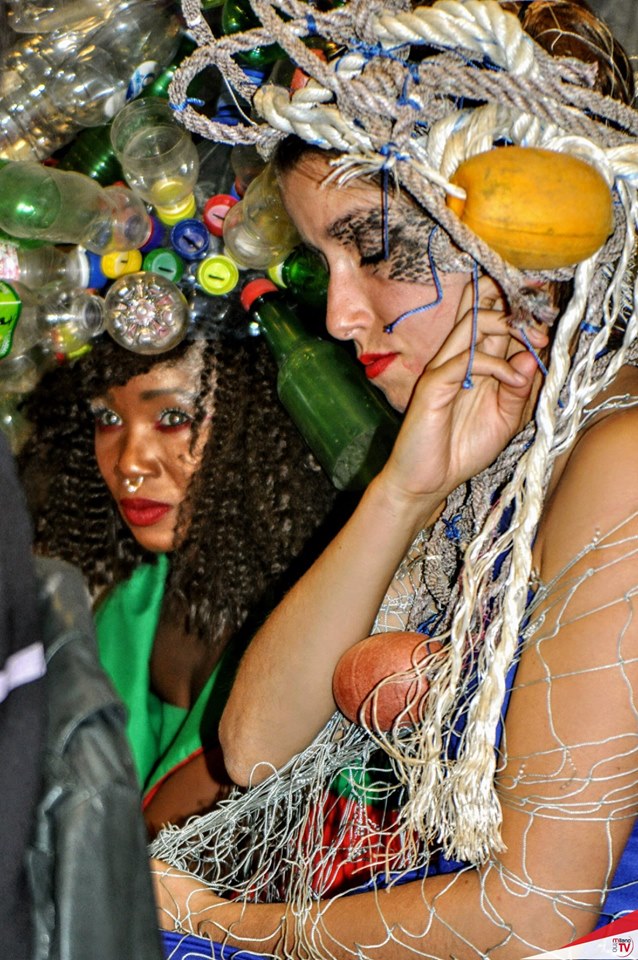
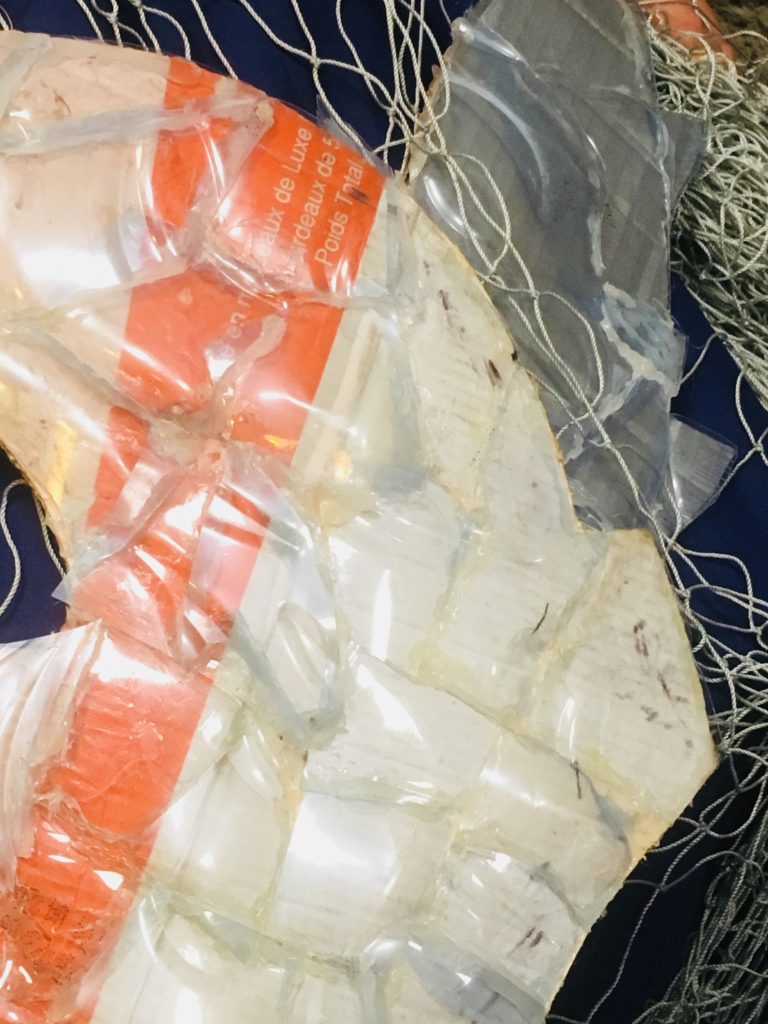
In the discussion Boubacar insisted on the environmental message of these designs and the Ecole’s duty of educating the pupils on sustainability. He also spoke of the social work they carry on, teaching girls professional skills that will help them reach financial independence and be the breadwinners in their families.
The exchange between myself, Emanuela Mora of Cattolica University, and Claudia Mazzucco of Milano Etno TV (read her article and see more pictures here) underlined the universal meaning and importance of Boubacar’s remarks and the contribution of other Senegalese designers to the circular economy and the empowerment of women.
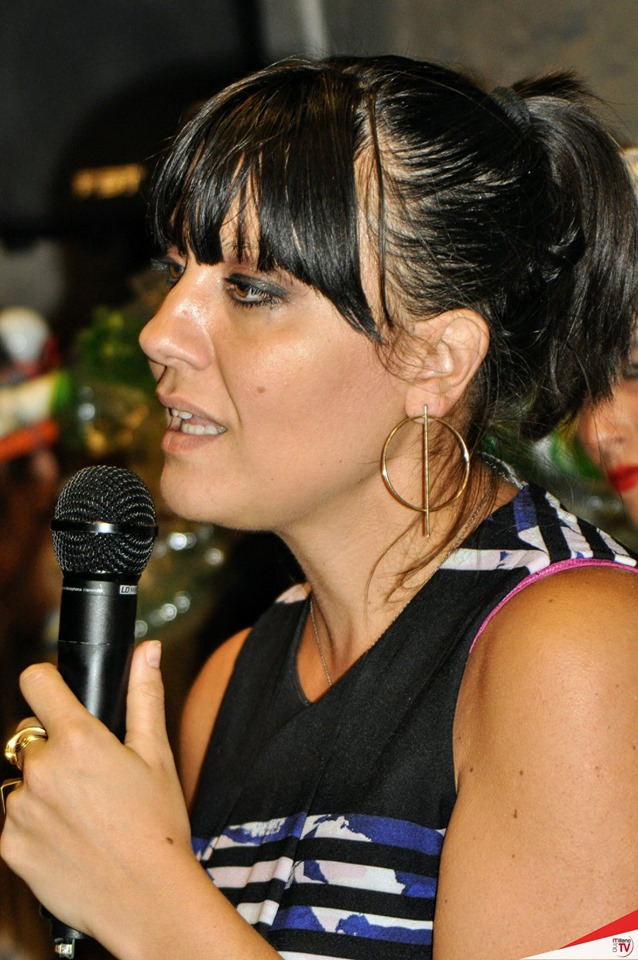
I look forward to participating to HubWax’s next events and working to create an active network of stakeholders promoting ethical fashion and sustainable art across Europe and Africa. I feel strongly that this project can help move people around, exploiting the best that globalization has to offer to begin redistributing material and immaterial value equally among economies.